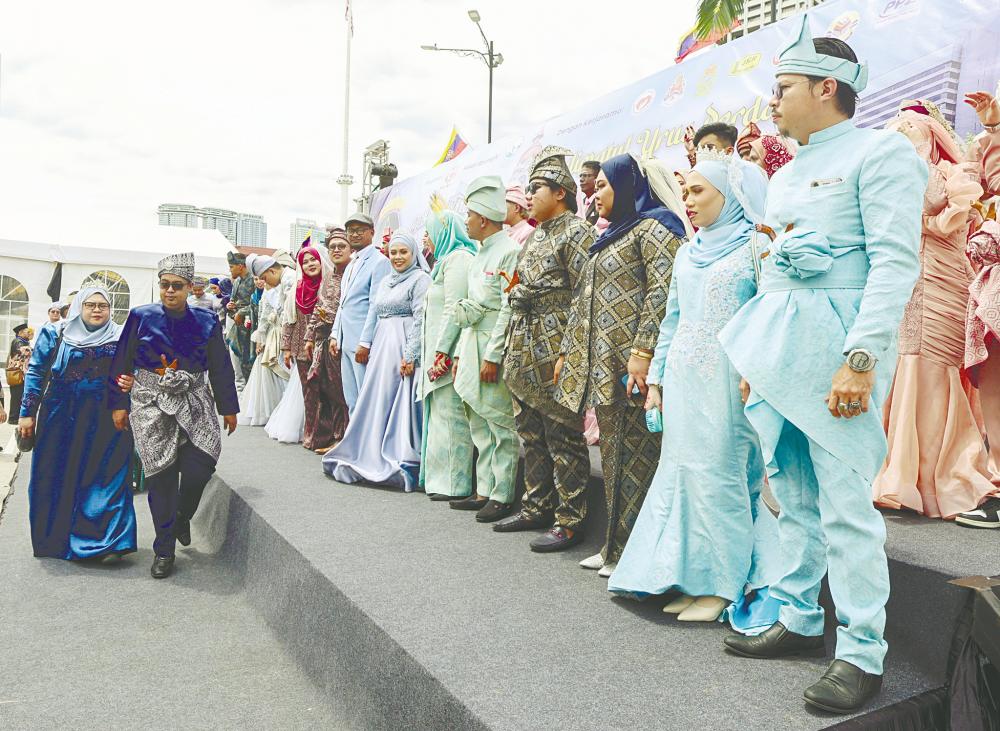PETALING JAYA: During a parliamentary debate last Thursday, Hulu Terengganu MP Rosol Wahid urged the government to introduce more incentives to address Malaysia’s declining birth rate and controversially suggested polygamy as a potential solution.
He highlighted the increasing trend of couples choosing to remain “child-free” by consciously deciding not to have children and the perception of marriage as a burden, which he said could negatively impact the country’s productivity.
However, Universiti Kebangsaan Malaysia (UKM) sociology and anthropology lecturer Prof Dr Novel Lyndon said Malaysia’s declining fertility rate stems from various socio-economic factors, including urban living costs, financial constraints and health challenges affecting fertility.
“High living expenses, particularly in urban areas, discourage families from having more children. These pressures, coupled with fertility-related health issues, create a scenario where population growth stalls, risking labour shortages and increasing reliance on foreign workers.”
He said while polygamy is permissible within certain religious frameworks, it clashes with modern societal values shaped by feminism and gender equality.
“There is a need to balance these two paradigms if such solutions are to be seriously considered.”
Malaysia’s fertility rate has dropped to 1.6 children per woman, well below the replacement level of 2.1, with the decline being consistent since 2013.
According to the Statistics Department, Malaysia’s live birth rate in the third quarter of 2024 was 100,645, reflecting a 12.3% decrease compared with 113,764 in the same period in 2023.
Lyndon suggested the government introduce targeted financial incentives for families with more than two children and workplace policies that encourage family building, such as flexible work arrangements and subsidised childcare.
“Addressing the fertility crisis requires a holistic intervention from the government. Financial incentives alone may not suffice without systemic changes that reduce the burden of marriage and parenthood,” he said.
He also proposed incentives for newly married couples to encourage more young people to marry earlier rather than prioritising their careers.
UKM research centre for psychology and well-being senior lecturer Dr Salina Nen concurred, attributing the growing trend of “child-free” couples to financial pressures, mental health challenges and shifting personal priorities among modern couples.
“Many weigh the financial and emotional costs of parenting against their current circumstances. High living costs, expensive childcare and education often discourage them from having children. Mental health struggles also lead to a sense of unpreparedness for the responsibilities of raising a child,”
she said.
Salina added that modern couples often prioritise personal growth, career stability and financial independence before considering parenthood.
The decline in traditional extended family structures, which historically supported child-rearing, has further intensified these challenges.
“Some couples do not enjoy being around children. While this is less common, it may stem from a lack of experience or confidence in handling young children. Policy interventions should focus on reducing the burden of parenting through affordable childcare, early education and parent-friendly work environments.
“Convincing couples to have children requires systems and policies that make parenting less daunting. Without such support, persuading them to prioritise family over personal and professional goals will remain problematic,” she said.









